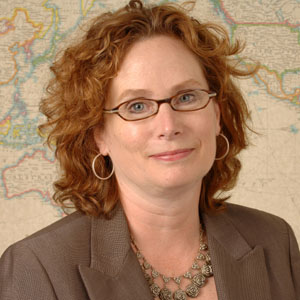Chicago in the News
The Chronicle’s biweekly column Chicago In the News offers a digest of commentary and quotations by a few of the University faculty members, students and alumni who have been headlining the news in recent weeks. Chicago faculty members are some of the most frequently quoted experts, so space allows publishing references to only selected examples.
To read many of the full newspaper articles mentioned in this column, visit the In the News column at the University News Office Web site: http://www-news.uchicago.edu/.
 Fermilab's Wilson Hall | |
Managing science in the 21st century
The University’s role as the scientific manager of both Argonne National Laboratory and Fermi National Accelerator Laboratory for the U.S. Department of Energy was the topic of Milt Rosenberg’s Extension 720 show on WGN Radio Tuesday, Dec. 19. Thomas Rosenbaum, Provost and the John T. Wilson Distinguished Service Professor in Physics; Michael Turner, the Bruce V. and Diana M. Rauner Distinguished Service Professor in Astronomy & Astrophysics; Robert Rosner, Director of Argonne National Laboratory and the William E. Wrather Distinguished Service Professor in Astronomy & Astrophysics; and Pier Oddone, Director of Fermilab, were Rosenberg’s guests during the program.
Prosperity depends on peace and security
Roger Myerson, the William C. Norby Professor in Economics and the College, was quoted in an Associated Press story that was published in the International Herald Tribune on Friday, Dec. 8. Reporting on some of the conclusions drawn by members of the Iraq Study Group, the article described how the production of oil, Iraq’s main resource for revenue, falls short of its potential. Myerson commented on the security problems in Iraq that are hindering the country’s economy. “Nothing in the economy can work without peace and secure property rights. Investment and job creation depend on those. Peace is what they need more than anything else,” he said.
The politics of prejudice
Marianne Bertrand, the Fred G. Steingraber/A.T. Kearney Professor of Economics in the Graduate School of Business, commented in a Sunday, Dec. 24 Chicago Tribune article that described how some people are subconsciously prejudiced against uncommon and unique names. The article raised the question: Would voters respond with prejudice against the name Barack Obama, should Obama run for President in 2008? Bertrand, who has studied how hiring managers judge resumes based on applicants’ names, said human resources personnel and American voters would not necessarily react the same to an uncommon name. “You are talking about people working under pressure, who have a lot of things to do. Often, they just look at a resume and move on . . . but when you’re considering a presidential candidate, that isn’t the case.”
Libertarians lean to left?
Richard Epstein, the James Parker Hall Distinguished Service Professor in the Law School, was quoted in an Associated Press article that was carried on the newswire service Wednesday, Dec. 13. Epstein was among 29 law school professors from across the country who filed a legal brief with the 4th U.S. Circuit Court of Appeals last month, which argued that the government’s treatment of Ali Saleh Kahlah al-Marri, a suspected al-Qaida sleeper agent, was unconstitutional. Epstein, a libertarian and member of the conservative, legal group the Federalist Society, noted that the Bush administration’s national security policies have alienated libertarians. “It shows the phrases ‘conservative’ and ‘libertarian’ have less overlap than ever before. This administration has lost all libertarians on all counts.”
 Maria Woltjen | |
Safeguarding young in search of refuge
Maria Woltjen, Director of the Immigrant Children’s Advocacy Project, was quoted in a Chicago Sun-Times story about the program, which provides child protection advocates to unaccompanied immigrant children in federal custody and housed at the International Children’s Center in Chicago. University law students who are fluent in Spanish, Mandarin and Hindi serve as advocates by working with attorneys to safeguard the children’s interests. “What we want is for them to learn the children’s stories and, by doing so, then help the attorneys understand whether or not the child might have a claim for relief,” said Woltjen, who joined the Chicago faculty this year as a Lecturer in the Law School.
Critic offers kudos for Court’s consistency
 August Wilson's Fences | |
Court Theatre received praise from Wall Street Journal drama critic Terry Teachout in the Friday, Dec. 22 edition of the paper. Teachout noted in his article on the best of 2006 in theatre—“One final piece of praise: The Court Theatre, the University of Chicago’s resident professional troupe, is in my opinion the most consistently excellent theater company in America. This year I saw its productions of August Wilson’s Fences and Peter Shaffer’s Lettice and Lovage, and they were, like everything else I’ve seen at the Court, comprehensively satisfying. Along with the Irish Repertory Theatre, my favorite Off Broadway company, the Court Theatre is a shining example of what American theater can and should hope to be.”
Who will buy Dubai’s leap to financial top?
Saskia Sassen, the Ralph Lewis Professor in Sociology and the College, was quoted in an article published in The Economist that reported on Dubai, one of the United Arab Emirates. Dubai is aiming to become a global financial leader, having built the Dubai International Financial Centre with support from the ruling al-Maktoum family and its close business partners. The effort to compete as a major financial services hub that serves some of the world’s biggest investment bankers, asset managers and fund administrators, has caused some skepticism among business leaders and those who study global cities, such as Sassen. The article described Dubai as a place that has “thrived as a trading entrepot living off its wits.” Noted Sassen, “When I look at Dubai, I think of Amsterdam in the 16th century. Dubai is not a six-month miracle.”
Ready to sell . . . and retire
Research co-authored by Robert Vishny, the former Eric J. Gleacher Distinguished Service Professor of Finance in the Graduate School of Business, and a Harvard University colleague was noted in a Sunday, Dec. 17 New York Times story on the correlation between overvalued stock markets and soaring mergers and acquisitions. Providing an explanation for why a company would sell itself for overvalued stock, their theory proposes that managers from the selling company may be ready to retire or have options or stock they are eager to sell. The managers would also be able to quickly unload the acquiring company’s stock without concern for the longer-term outcome.
Process of elimination
Jeanette Newton Keith, Assistant Professor of Gastroenterology in Medicine, was interviewed for a Sunday, Dec. 10 story in the Chicago Tribune. The article reported on detoxifying one’s body by employing fasting, colonics and eating raw foods, and whether or not these practices result in real health benefits. “You can overdo it in terms of long-term colon cleansing,” said Newton Keith. She also pointed out that the human body’s own process of eliminating toxins is effective for cleansing the colon of any built-up cancer-causing agents from foods, when it is working properly and regularly.
![[Chronicle]](/images/sidebar_header_oct06.gif)